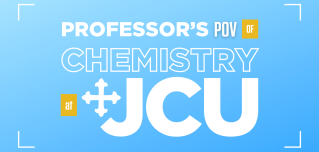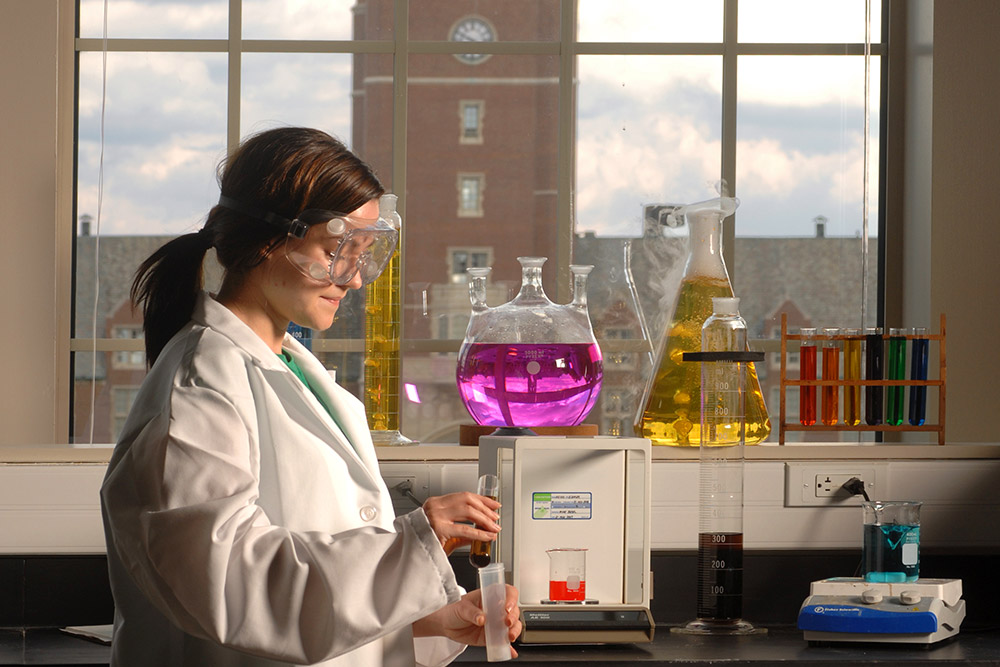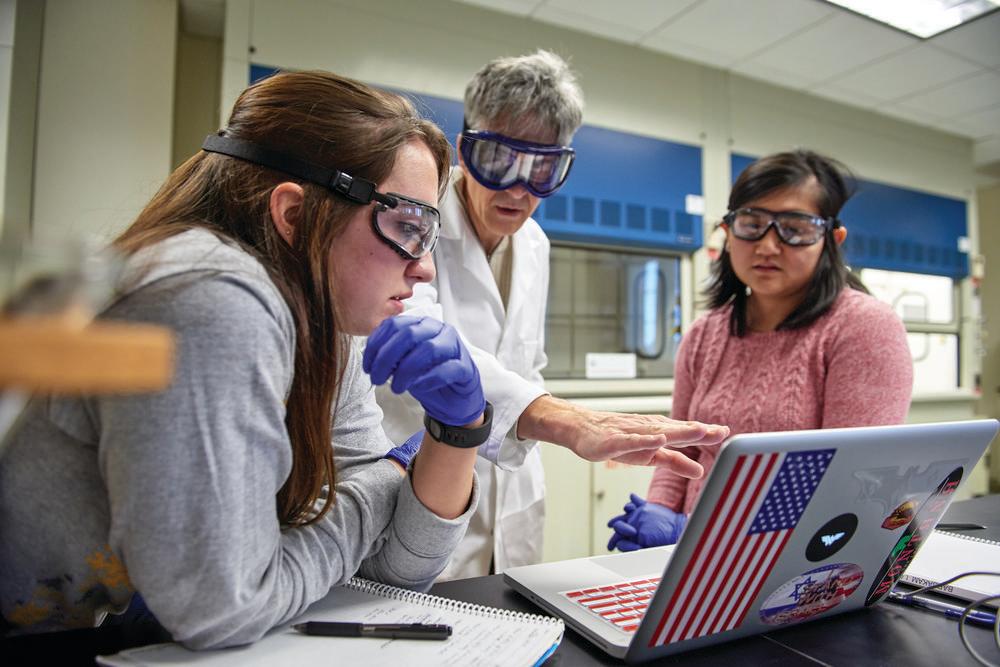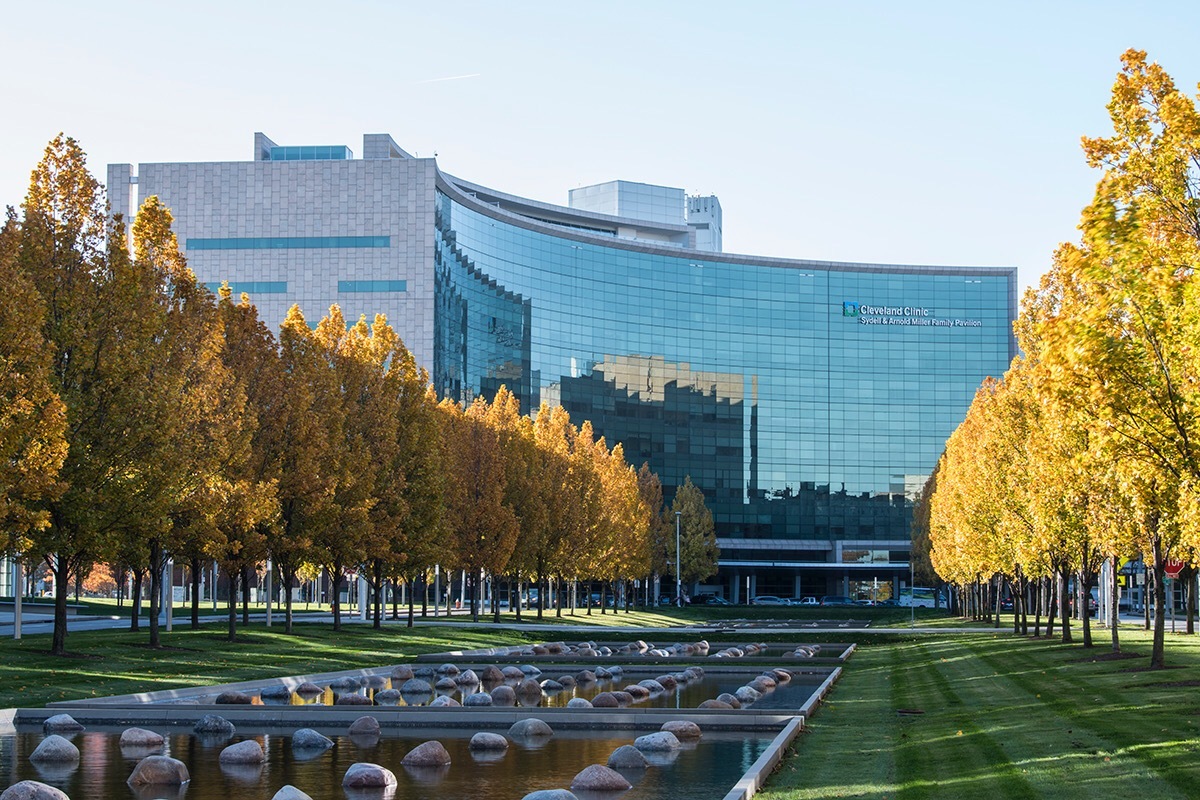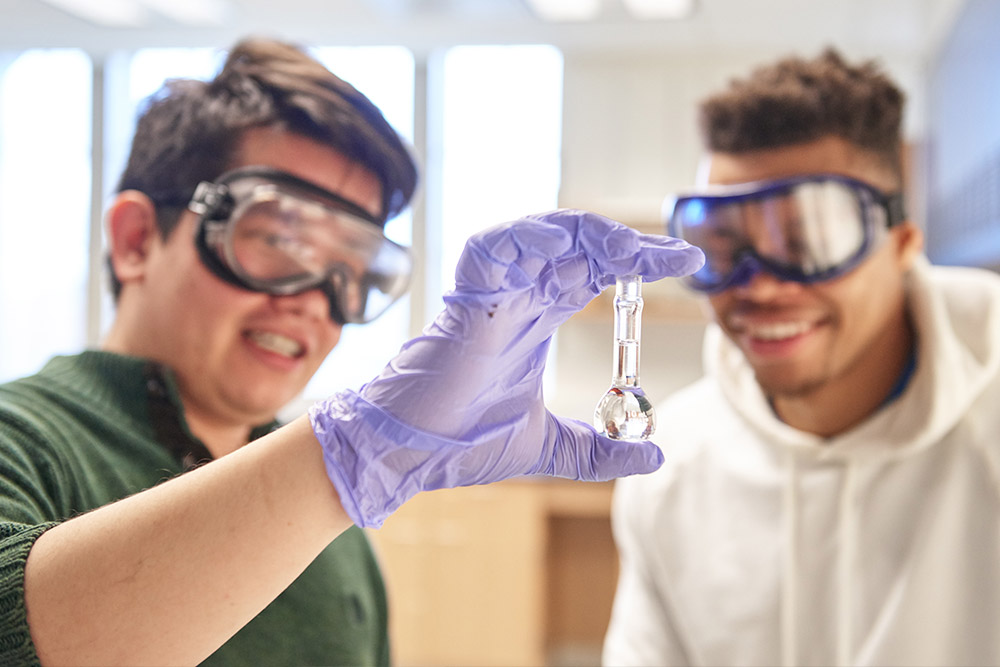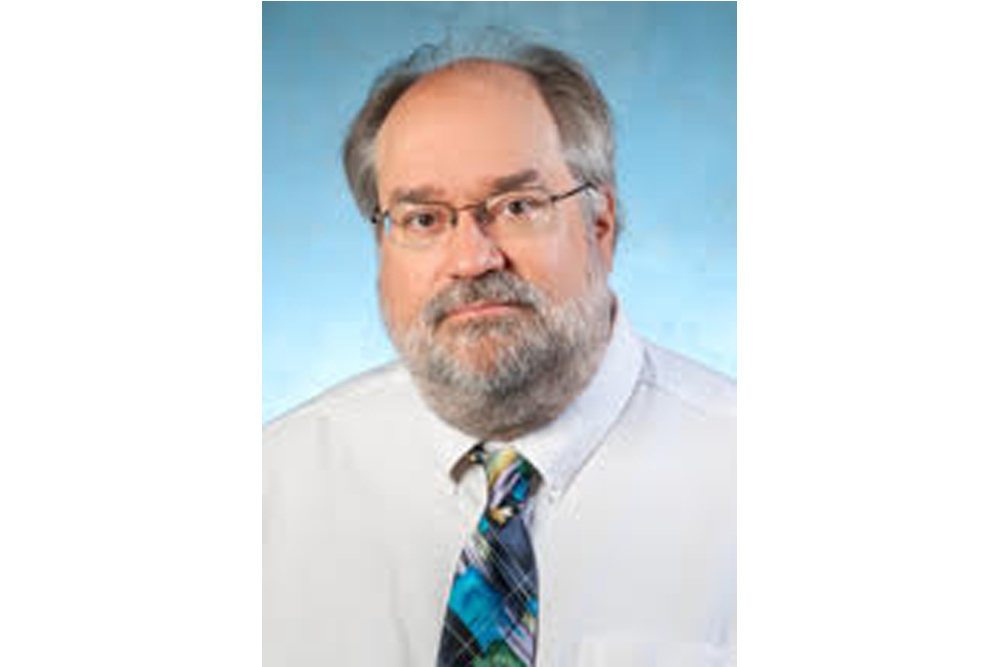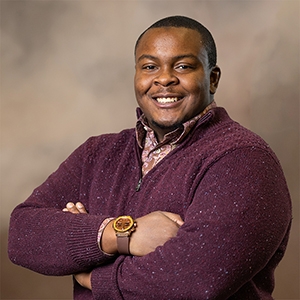Some of the world’s most anticipated research and most profitable businesses emerge from the science of chemistry. New tools and technologies allow people with a strong background in chemistry to create breakthrough vaccines and other drugs, and to manipulate the fundamental building blocks of material to create self-healing electronics membranes and sustaining fuels. Emerging aspects of chemistry include sustainability/green chemistry, macromolecular chemistry with biomolecules (proteins, DNA/RNA, etc.), industrial polymers (plastics), and nanomaterials.
Pursuing a Bachelor degree in Chemistry at John Carroll University puts you on the path to be a part of that future.
